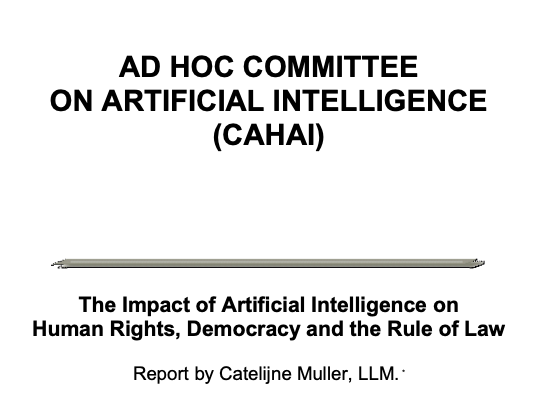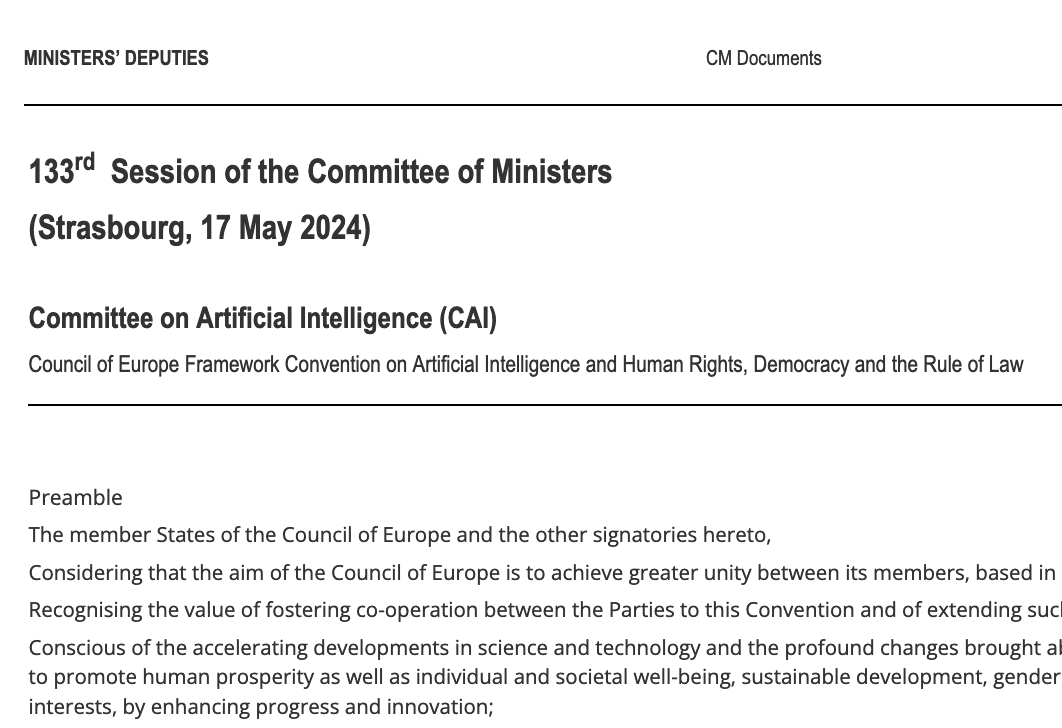Council of Europe adopts first international treaty on AI
May 19, 2024
The Council of Europe Framework Convention on artificial intelligence and human rights, democracy, and the rule of law was adopted in Strasbourg during the annual (2024) ministerial meeting of the Council of Europe’s Committee of Ministers, which brings together the Ministers for Foreign Affairs of the 46 Council of Europe member states.
In September 2019, the Council of Europe ‘s Committee of Ministers established the “Ad Hoc Committee on Artificial Intelligence” (CAHAI), an intergovernmental committee with a two-year mandate from 2019-2021. The CAHAI was mandated to examine the feasibility of a new binding legal AI for the development, design and application of AI within the boundaries of human rights, democracy and the rule of law as guiding standards. In December 2021, the Committee unanimously decided that there was indeed a need for such additional binding legal AI on AI. In its final report, the CAHAI set out a checklist of useful elements that should ideally be included in a new binding instrument.
It should be noted that, from the outset, the negotiations involved not only (then 47 ) member states of the Council of Europe, the European Union and the 5 Observer States (Canada, Japan, Mexico, USA and the Holy See), , but that the Committee of Ministers also accepted the requests by Argentina, Australia, Costa Rica, Israel, Peru, and Uruguay to be admitted to the negotiations sending a clear signal about the global vocation of the future Convention. In addition, and in line with Council of Europe practice, relevant non-state actors were involved as Observers to the development of the AI convention, including civil society organizations such as ALLAI, companies and representatives of international organizations and agencies such as the OECD, UNESCO, FRA and the EDPS.
The AI Convention aims to address the potential risks governments face when AI is being deployed, either by public or by private actors. As will be discussed in detail below, it sets out general obligations regarding the protection of human rights, integrity of democratic processes and respect for the rule of law, against risk of harm from AI. Moreover, it establishes specific principles such as human dignity and autonomy, equality and non-discrimination, privacy and personal data protection, accountability and responsibility, transparency and oversight, reliability and safe innovation. that must be ensured within the lifecycle of AI systems.
ALLAI has been involved in the process running up to this treaty from the outset. Catelijne Muller advised the CAHAI on if and if so how an AI Treaty should be developed and ALLAI consequently became Observer to the CAHAI and then CAI and actively provided input for the negotiating parties.




